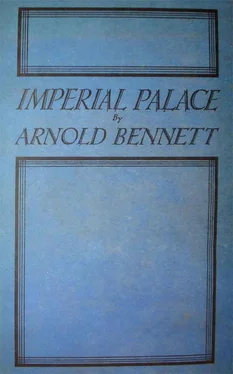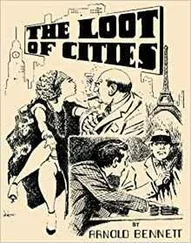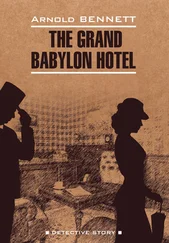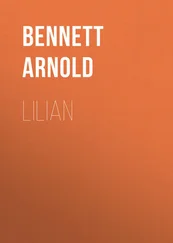Arnold Bennett - Imperial Palace
Здесь есть возможность читать онлайн «Arnold Bennett - Imperial Palace» — ознакомительный отрывок электронной книги совершенно бесплатно, а после прочтения отрывка купить полную версию. В некоторых случаях можно слушать аудио, скачать через торрент в формате fb2 и присутствует краткое содержание. Жанр: unrecognised, на английском языке. Описание произведения, (предисловие) а так же отзывы посетителей доступны на портале библиотеки ЛибКат.
- Название:Imperial Palace
- Автор:
- Жанр:
- Год:неизвестен
- ISBN:нет данных
- Рейтинг книги:4 / 5. Голосов: 1
-
Избранное:Добавить в избранное
- Отзывы:
-
Ваша оценка:
- 80
- 1
- 2
- 3
- 4
- 5
Imperial Palace: краткое содержание, описание и аннотация
Предлагаем к чтению аннотацию, описание, краткое содержание или предисловие (зависит от того, что написал сам автор книги «Imperial Palace»). Если вы не нашли необходимую информацию о книге — напишите в комментариях, мы постараемся отыскать её.
Imperial Palace — читать онлайн ознакомительный отрывок
Ниже представлен текст книги, разбитый по страницам. Система сохранения места последней прочитанной страницы, позволяет с удобством читать онлайн бесплатно книгу «Imperial Palace», без необходимости каждый раз заново искать на чём Вы остановились. Поставьте закладку, и сможете в любой момент перейти на страницу, на которой закончили чтение.
Интервал:
Закладка:
Without rising, father Dennis said in his hardly audible hoarse murmur:
“The secretary will kindly read the notice convening the meeting.”
And Mr. John Crump, nervous as always on august occasions, got up and read the notice in a voice rendered loud and defiant by his nervousness.
Then three unpunctual shareholders crept in on guilty tip-toes, and sat down, and chairs scraped on the parquet.
Then father Dennis cumbrously rose.
“Ladies and gentlemen,” he began in his murmurous squeak.
“We’re off!” thought Evelyn, humorously agog.
Yes, they were off, and there would be no surcease until the Resolution was carried or lost by the votes at the special meeting.
Father Dennis never wasted words on shareholders, partly on account of his throat, and partly because he delighted to starve them of words—at the end of a good year—and also to shock them by his casual brevity.
He said, while some shareholders put hands to ears:
“Figures speak louder than loud-speakers. I am sure that you have all studied our figures with that impartial conscientiousness which distinguishes all good shareholders. I need not therefore weary you with information of which you are already in full possession. I will merely remark, as much for my own satisfaction as for yours, that last year was a record year in the Company’s history, that our net trading profit after deducting fixed dividend on preference shares, debenture interest and sinking-fund charges, was equivalent to twenty and a half per cent. on our ordinary capital, and that we propose to declare a final dividend making fourteen per cent. per annum for the year, instead of last year’s eleven per cent., and incidentally I will point out that we are allotting £75,000 to our reserve fund, instead of last year’s £60,000. I move the adoption of the accounts and the payment of the dividend as recommended, and I call upon Mr. Evelyn Orcham, our managing director and orator, who will be less summary than myself, to second the motion.” With that he subsided into his chair, and glanced sardonically around as if to say: “You can put that in your pipes and smoke it; and go to hell.”
No applause greeted the statement of good tidings. The shareholders had been in possession of the tidings for days. At a banquet they would have loudly applauded a silly and insincere speech which was not worth twopence to their pockets. But to-day their stomachs had not been warmed. And they were shareholders—who take as a right all they can get and whose highest praise is forbearance from criticism.
Evelyn rose. He was not an orator, and speechifying made him nervous. But he always knew just what he wanted to say, and he would say it plainly, if too slowly. Now and then he would employ an unusual adjective which tickled him. The sheet of notes which he held in his hand was merely something to hold. He was not positively inimical to shareholders, for they were necessary to his life-work. But he disdained them as a greedy, grasping and soulless crew whose heads were swollen by an utterly false notion of their own moral importance. Nevertheless he used a tone different from the Chairman’s. The Chairman was a London figure, and could carry off any tone; and there was a pacifying glint in the Chairman’s old eye. Evelyn loved the Chairman’s brief pronouncements, which father Dennis called his ’turn.’ But part of Evelyn’s job as a hotel-manager was to flatter shareholders. Bad times might come again, and then shareholders who had been flattered would be easier to handle than shareholders who had been treated year after year with cynical curtness. Therefore Evelyn flattered, but with a hidden private cynicism which even exceeded the Chairman’s.
II
“Ladies and gentlemen,” he began. “Your hotels”—and his thought was “Your hotels? Good God! They aren’t your hotels. You couldn’t have started them. You couldn’t run them. You don’t understand them. You’ve no idea what wonderful, romantic things they are. You know nothing about them, except a few arithmetical symbols which I choose to offer you and which are beyond your comprehension. You didn’t buy shares because you are interested in hotels; only because you believed that you could squeeze a bit of money out of them. Whereas ‘your’ hotels are my creation. I live for them. I have a passion for them. Without me they would be hotels, common hotels, not the hotels. If I left them, as I could, your precious dividends would diminish and might disappear. ‘Your’ hotels are mine, and if you denied this I could prove it to you quick enough. Ignoramuses! Is any one of you aware, for instance, that at this moment I am wondering how the devil I can entice my customers in my restaurant and my grill-room to consume more than a dozen and a half champagne per hundred covers? Does any one of you guess that in my opinion an average of one-sixth of a bottle of champagne per person dining or lunching is a shockingly low average—especially considering the qualities of my champagne? Not one of you! Barbarians! Benighted savages! Unworthy of respect! ‘Your’ hotels!”
In the midst of these lightning reflections he went on aloud to the audience:
“Your hotels, thanks entirely to the willing and generous cooperation which the Board has received from you in supporting us in a policy of large annual expenditure in order to keep your establishments abreast or in front of the times”—(“This sentence is getting out of hand,” he thought. “I’d better kill it.”)—“your hotels, I say, have passed through an extremely difficult year not without credit. I will first of all refer to the difficulties.”
And he did refer to the difficulties: the poorness of the previous London season, the obstinately high price of commodities; the dearth of good service; the austerity of customers; the rapacity of customers, who once asked only for food and drink at meals, then demanded music, then demanded dancing-floors, and now were demanding cabarets; the unwillingness of Americans to come to Europe in the anticipated numbers; the monstrous and crushing absurdity of the licensing laws; the specious attractions of continental resorts; the curse of the motor-car, which had pretty well strangled week-end business to death; and forty other difficulties . . . until you might have been excused for wondering why the Imperial Palace Hotel had not been forced into so-called ‘voluntary’ liquidation. The brighter side of the enterprise he glossed over. The arithmetical symbols he touched upon lightly, using the plea that they were self-explanatory to shareholders so intelligent as the shareholders of the Imperial Palace Hotel Company Limited.
“In conclusion,” said he, “I should like to refer to one point. Your hotels, and particularly the Imperial Palace, have been called dear—in their charges. I resent the word, and I think that you will resent it. They are expensive; but dear they are not. We try to give, and I claim that we do give, better value for money than any other hotel in this country. And the proof that the public shares this opinion lies in the undoubted fact that the public is patronising your hotels more and more. The public cannot be deceived for long. Many hotels have attempted to deceive it, and they have failed to do so. We—I mean everybody present when I say ‘we’—have not attempted to deceive it. I am sure that you, the shareholders, would never agree to a policy of pretending to the public that your hotels are what they are not. We maintain that they are the most luxurious and efficient in the world, and that their charges are as low as is consistent with the desire for perfection which animates us all. Ladies and gentlemen, I thank you for the patience with which you have listened to my halting remarks—our ironic Chairman ought not to have dubbed me ‘orator’—and I have great pleasure in seconding the motion.”
Читать дальшеИнтервал:
Закладка:
Похожие книги на «Imperial Palace»
Представляем Вашему вниманию похожие книги на «Imperial Palace» списком для выбора. Мы отобрали схожую по названию и смыслу литературу в надежде предоставить читателям больше вариантов отыскать новые, интересные, ещё непрочитанные произведения.
Обсуждение, отзывы о книге «Imperial Palace» и просто собственные мнения читателей. Оставьте ваши комментарии, напишите, что Вы думаете о произведении, его смысле или главных героях. Укажите что конкретно понравилось, а что нет, и почему Вы так считаете.












